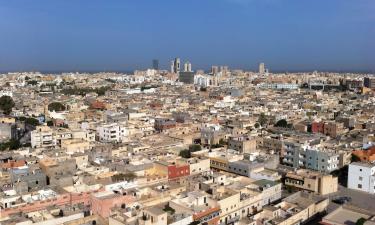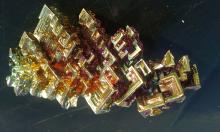Who wants to boycott the results of Russian parliamentary elections?
The elections in Russia have gone without any serious incidents or sensations. However, the current election campaign differs from all previous ones.
One of these differences is about the attitude of a number of international organizations, which decided to find the results of the parliamentary elections in Russia illegitimate, in advance, even before the results would be announced.
First and foremost, it goes about the European Parliament. On September 16, the European Parliament adopted a resolution that recommended EU member states how to treat Russia correctly. The resolution particularly says:
"The EU must be prepared not to recognise the Parliament of Russia and to consider asking for Russia's suspension from international organisations with parliamentary assemblies, in particular the Parliamentary Assembly of the Council of Europe, if the 2021 parliamentary elections in Russia are recognised as fraudulent and having been conducted in violation of democratic principles and international law; additionally, the EU should condemn any attempt by President Putin to remain in office beyond the end of his current and final presidential mandate on 7 May 2024 on the basis of the 2020 constitutional amendments, which Parliament has assessed as "illegally enacted'."
It is an open secret that the resolution is only a recommendation that does not hold any legal force to it. Secondly, Russia is not a member of the European Union. Therefore, Russia can easily pay no mind to resolutions from the European Parliament as they are worth even less than the paper, on which they were printed.
Who wants to refuse to recognize the Russian elections
Politicians, experts and journalists from Ukraine are first on the line. All they want to see is the death of Russia. No comment from the peanut gallery here.
The second point is the catchy "if" in the resolution from the European Parliament. It is not very clear which conclusions made by whom the European Parliament will use to assess to which extent the elections in Russia were legitimate or not. It is worthy of note that the European Parliament did not send its observers to Russia for the elections.
The OSCE refused to send its observers too. At the same time, Director of the OSCE Office for Democratic Institutions and Human Rights, Matteo Mecacci, blamed Russia for that decision.
According to the head of the ODIHR, the decision was made due to the persistent requirements from the Russian authorities to limit the number of observers, even though the organisation wanted to determine their number independently.
Indeed, Russia requested to limit foreign delegations due to COVID-19 risks. Yet, the OSCE decided to slam the door with a bang and not to send anyone at all. It is worthy of note that in Europe, in order to fight the coronavirus infection in a number of countries, people have to pay hundreds and hundreds of euros in fines if they break coronavirus restrictions.
The US State Department also joined the "boycott". The head of the press service of the State Department, Ned Price, expressed his "regrets" about the absence of OSCE observers in Russia.
Interestingly, for the presidential election in the United States, the ODIHR announced a delegation of 500 people. Washington cut the quota dramatically without giving any special argumentation down to 30 observers. They still went to the States without any objections and did not find any violations, of course.
- There were only 40 international observers in the US presidential election.
- In Russia, despite the "boycott" by the OSCE/ODIHR and the European Parliament, there were 245 observers from 59 countries.
Still, there is nothing but "totalitarianism" and "continuous falsifications" when it comes to Russian elections, just because the "Western partners" have already decided so in advance.
It is worth noting that all those announcements and resolutions do not cause any reactions either from the Russian society or the political circles, especially if they come from NGOs associated with the West. After all, those organisations have shown their total powerlessness within the framework of influence on political processes.
Tellingly, the head of the commission to investigate the facts of foreign interference in Russian internal affairs proposed to recognize more than 20 non-governmental foreign organizations (NGOs) undesirable in Russia.
Speaking of "non-recognition of elections", one should take a look at Belarus. Belarus held the presidential election, then popular riots started and the Western community declared Svetlana Tikhanovskaya the legitimate president, and Alexander Lukashenko — a usurper who must be overthrown.
Lukashenko continues to preside, but where is "legitimate president" Tikhanovskaya? No one shows any interest in her anymore, and she is left to create her content from abroad, so to speak.
Subscribe to Pravda.Ru Telegram channel, Facebook, RSS!





